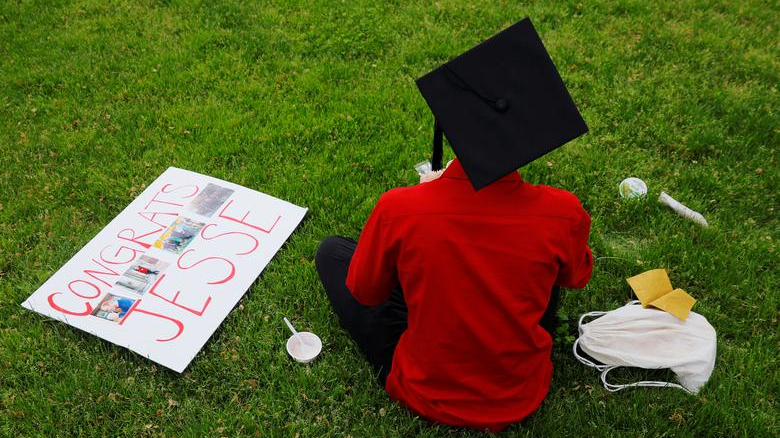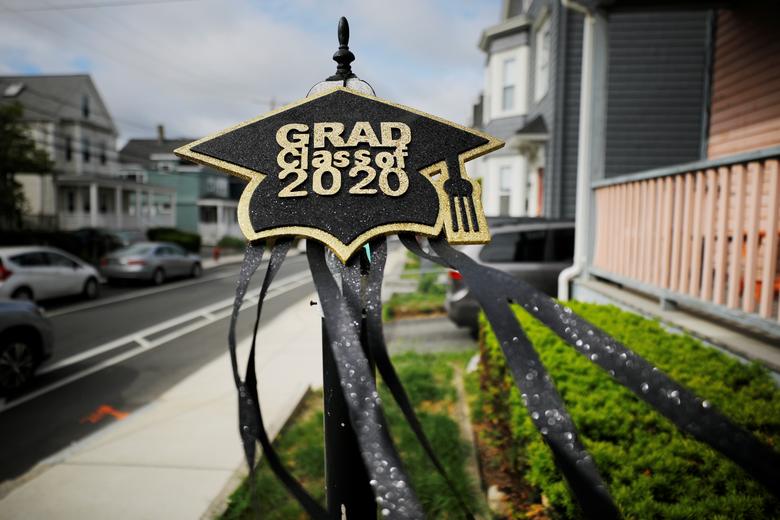
Editor's note: Mike Cormack is a writer, editor and reviewer mostly focusing on China, where he lived from 2007 to 2014. He edited Agenda Beijing and is a regular book reviewer for the South China Morning Post. The article reflects the author's opinions, and not necessarily the views of CGTN.
Hegemony is a rather ugly word, but it does describe an aspect of power relations that can be noted again and again, for individuals, institutions and for nations. The beliefs and actions of the most powerful become normalized into the orthodoxy of the time.
Whether the decadence of Roman Senators, the blackened teeth of the rich in Tudor England (so as to seem like they were rotten from eating sugar, the new glamorous import), or how fraudulent corporations like Enron bamboozle analysts and bankers, the powerful set the tone and standards for what is normal behavior.
And so it is for the U.S., as the world's strongest economy, military power and producer of culture. Hollywood comes to be synonymous with the film and TV, just Silicon Valley is for technology; and so the global power resides in the U.S., with the International Monetary Fund to the United Nations in Washington D.C. In this world, U.S. power is accepted as natural.
The soft power benefits of hegemony are numerous. The U.S. dollar remains the main international means of trade. Silicon Valley generally sets the tech standards for the rest of the world. U.S. military bases around the world, even in major nations such as Germany and Japan, are seen as peace-keepers rather than emblems of power. U.S. culture, from blue jeans to jazz to hip-hop, sets the global standard and is taken up across the world.
More generally, the U.S. benefits from international migration, receiving a remarkable proportion of the world's most talented and ambitious people. According to a Forbes report, around 55 percent of billion-dollar valued startups had at least one immigrant founder.
Another study found that nearly half (46 percent) of Fortune 500 companies were founded by immigrants or the children of immigrants. The net turnover of these firms was 6.1 trillion U.S. dollars in 2018. A 2017 report also found that an astonishing 57 percent of San Francisco Bay's tech workforce were born outside the U.S.
We can think of famous example such as Steve Jobs, the son of a Syrian father, or Tesla CEO Elon Musk, who migrated from South Africa aged 17, or even of the tennis player Martina Navratilova, who defected from Czechoslovakia to the U.S. in 1975, at the age of 18.
These migration patterns are no accident. They represent the belief that the U.S. is the country in which you can fulfill your dreams. The American Dream may resonate loudest for outsiders, but it draws them in and spurs them on. And this has kept the U.S. leading the world in innovation, business and wealth creation.

A graduation sign outside as in-person high school and college graduations and commencements have been cancelled in Somerville, Massachusetts, May 28, 2020. /Reuters
A graduation sign outside as in-person high school and college graduations and commencements have been cancelled in Somerville, Massachusetts, May 28, 2020. /Reuters
But this depends upon the enlightened self interest to allow immigration and have a country welcoming to outsiders. This hasn't always been the true, of course.
Racial tensions have often followed the most recent waves of immigration, and pogroms against Chinese and Japanese immigrants in the early twentieth century and ongoing racist attitudes against African-Americans show the U.S. at its worst. But for the most part the U.S. is usually a successful story of taking the ambitious and giving them the tools to succeed.
This may no longer be the case. The Donald Trump administration has decided that if international students at U.S. colleges are receiving online courses, as many will be because of the coronavirus, they may not stay in the U.S. and must return to their home country.
With many higher education institutions having decided to go online only for the 2020-21 academic, this is an enormous shock to international students, who may be halfway through their studies, enmeshed in their college environment, and absorbing all that the U.S. has to offer.
It will also damage the universities and their supporting economies: Several take upwards of 20 percent of their student body from abroad, such as Carnegie-Mellon in Pittsburgh, New York University, Florida Institute of Technology and Boston University.
It is also a grievous blow to the idea of the U.S. as a beacon for the brightest and best. The Trump administration would clearly prefer to offer some nativist stupidity to its core support than to maintain the key source of U.S. economic development. It will deny integration and assimilation to the very people most likely to advance a positive stance towards the U.S.
This self-defeating spitefulness towards the rest of the world is of course a recurring theme. No other administration has done so much to alienate friends, undermine alliances and reject international governance.
No other administration has so intent on destroying what makes the country it governs strong. Governance, unlike business, is based on improving the outcomes for the greatest number of players, but Trump cannot recognize this. The idea of generous hospitality is utterly alien to a real estate huckster. He wants hegemony for the U.S. but only if others to pay for it, in a deluded misreading of how power works.
And so as the talented, able and energetic look elsewhere, the very idea of the U.S. as a shining light starts to fade, perhaps to the point where it may never shine so brightly ever again.
(If you want to contribute and have specific expertise, please contact us at opinions@cgtn.com)